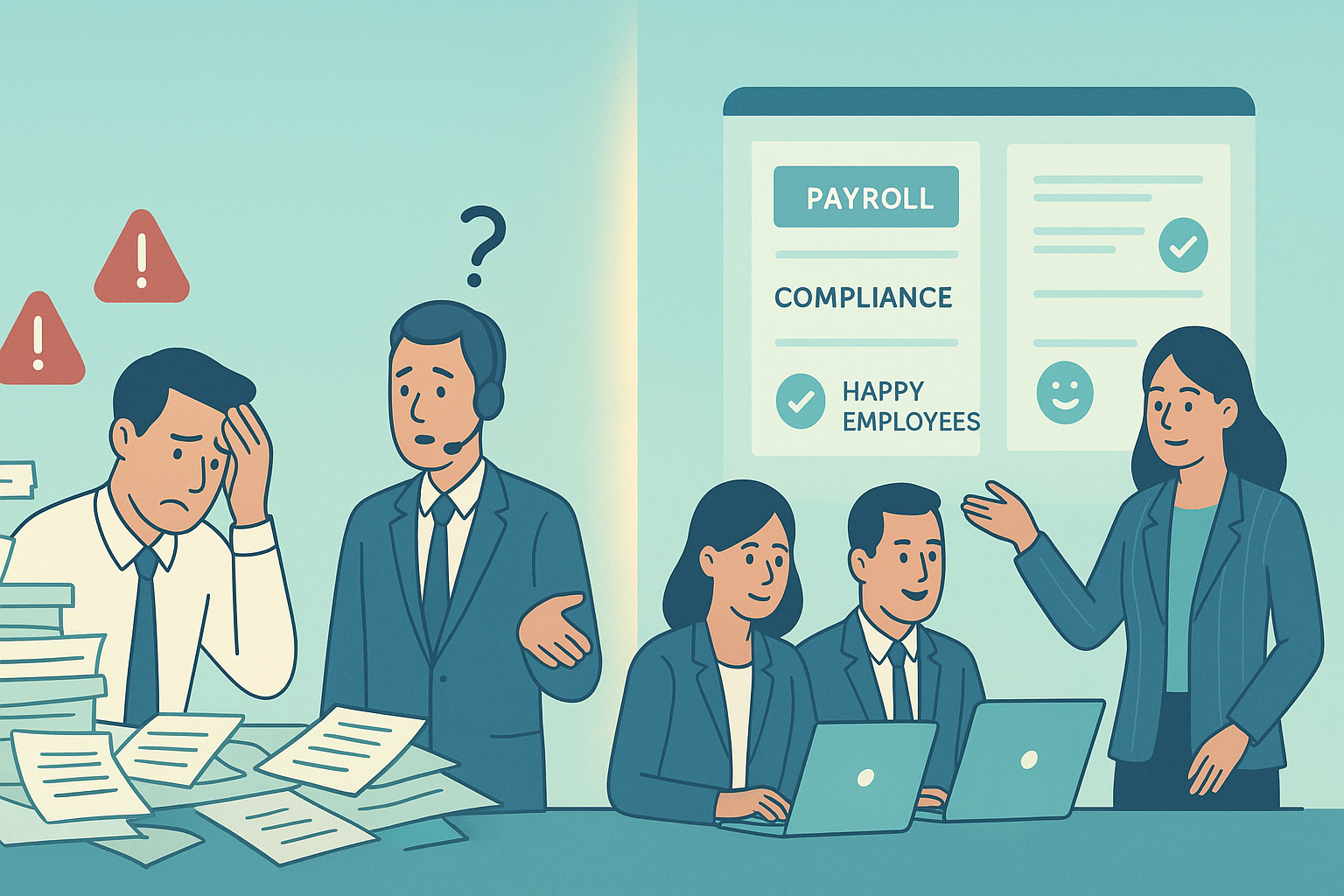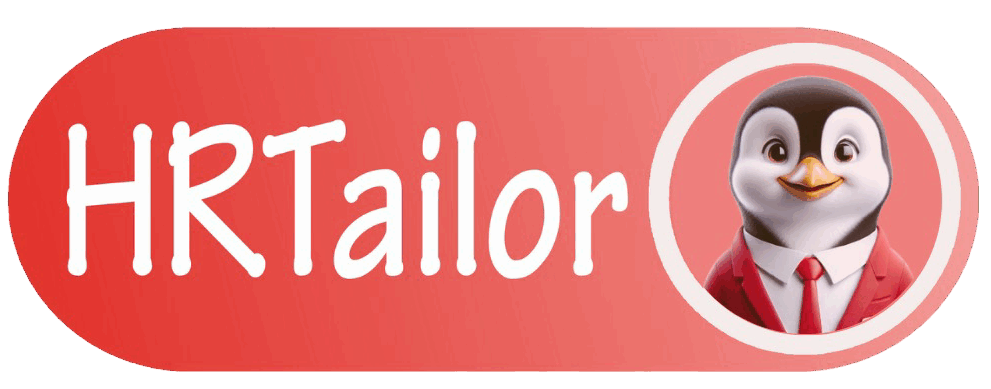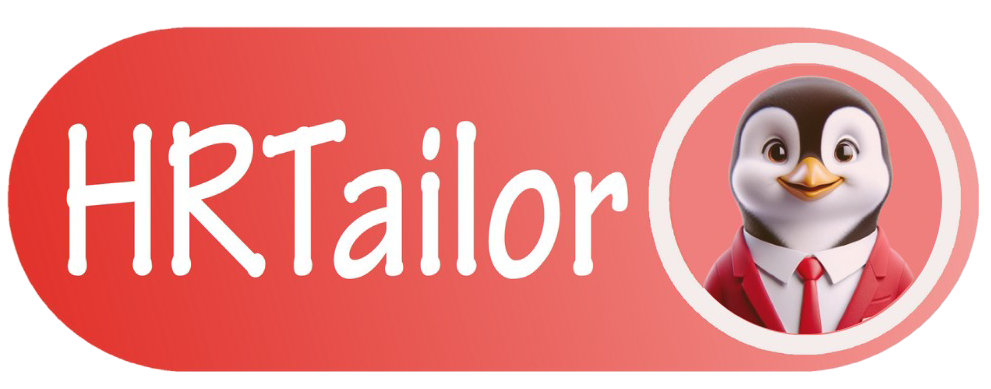
Why Most HR Outsourcing Partnerships Fail (And How to Choose the Right Vendor)
Imagine this: You’re a CEO of a fast-growing startup. You’ve just hired your 50th employee. Payroll is a mess, compliance filings are piling up, and your HR manager is drowning in paperwork. So, you think: “Let’s outsource HR! That should solve everything.”
Sounds familiar? Many business owners feel the same excitement. But within a few months, frustration sets in. Employees complain about delayed payroll. Compliance alerts keep popping. And instead of relief, you’re more stressed than ever.
Why do so many HR outsourcing partnerships fail? And how can you make sure yours doesn’t?
In this blog, we’ll explore real-life reasons for failure, common pitfalls, and practical steps to select the right HR vendor—so your business and your employees actually benefit.
Common Reasons HR Outsourcing Partnerships Fail
1. Lack of Alignment With Business Goals
Many companies pick a vendor based solely on cost or convenience. Here’s the problem: HR isn’t just about paying salaries. It’s about supporting your strategic goals—whether that’s scaling rapidly, improving employee engagement, or staying compliant globally.
Mini story:
Rajesh, the CEO of a 100-person tech firm, outsourced HR to a low-cost vendor. The vendor handled payroll but ignored strategic hiring needs. Within six months, Rajesh realized his team had skill gaps that slowed projects. They weren’t just paying for HR—they were paying for missed growth opportunities.
Tip: Ask potential vendors how they will support your long-term HR strategy, not just day-to-day administrative tasks.
2. Poor Communication
Some partnerships fail simply because the vendor doesn’t communicate clearly or proactively. Emails go unanswered, updates arrive late, and important deadlines are missed.
Mini story:
An e-commerce startup outsourced HR but had no dedicated account manager. When employees didn’t receive reimbursements on time, the CEO had to intervene personally—spending hours that should have gone to business growth.
Tip: Ensure your vendor has dedicated account managers and uses reliable communication tools. Clear updates prevent frustration and maintain trust.
3. Inadequate Knowledge of Local & Global Compliance
Compliance is complex—especially for companies expanding internationally. Vendors who don’t understand labor laws, tax obligations, or local regulations can create serious problems.
Example:
A US-based company hired remote developers in India through an inexperienced vendor. Payroll was processed incorrectly, PF and ESI contributions were delayed, and statutory penalties were levied.
Check out our Blog: The Only HR Compliance Checklist Indian Businesses Need
Tip: Verify your vendor’s expertise in local and international labor laws, especially if you hire across borders.
4. Lack of Technology Integration
Traditional HR outsourcing often relies on spreadsheets and manual processes. Modern businesses need HRMS tools, automated payroll, and real-time dashboards to track employees, leave, and compliance.
Mini story:
A startup outsourced HR but received payroll reports in PDFs, requiring manual calculation. Mistakes happened every month, causing frustration for both HR and employees. Switching to a vendor with digital HR tools solved these issues overnight.
Tip: Choose a vendor offering technology-enabled solutions to minimize errors and save time.
5. Hidden Costs & Lack of Transparency
Nothing kills a partnership faster than unexpected fees or vague contract terms. Many businesses discover costs for onboarding, statutory filings, or off-cycle payroll only after signing the contract.
Tip: Always ask:
Are there extra charges for compliance filings?
Are SLA terms clearly defined?
Are monthly reports included?
Transparent contracts prevent conflicts and foster trust.
Real-Life Case Study: A Partnership Gone Wrong
Let’s illustrate the stakes with a story:
The Situation: A 120-person IT company outsourced HR to a new vendor.
The Problems:
Payroll errors every month
Delayed statutory filings
No proactive communication from the vendor
The Impact: Employees were unhappy, deadlines were missed, and the CEO spent hours firefighting instead of strategizing growth.
The Resolution: The company switched to a tech-enabled, compliance-focused vendor (like HRTailor). Within weeks, payroll errors were gone, compliance filings were automated, and employees were satisfied.
Lesson: The right vendor transforms HR from a stress point to a strategic advantage.
How to Choose the Right HR Outsourcing Vendor
1. Assess Their Track Record: Look for vendors experienced in your industry and business size. Check case studies, testimonials, or independent reviews.
2. Verify Compliance Expertise: Your vendor must understand statutory, regulatory, and contractual obligations in your country and, if relevant, abroad.
Check out: SHRM HR Outsourcing Guidelines
3. Evaluate Technology Capabilities: Ask about automation, dashboards, and HR software integrations. The right vendor reduces errors, improves transparency, and saves time.
4. Check for Cultural Fit: Your HR vendor will handle sensitive data and employee relations. Ensure they align with your company culture and communication style.
5. Define Clear KPIs & SLAs: Set measurable goals and service-level agreements before signing. This keeps both sides accountable and avoids misunderstandings.
Conclusion: Don’t Just Choose, Choose Wisely
HR outsourcing can be transformative, but only when done right. Avoid pitfalls by:
Aligning vendor goals with your business strategy
Prioritizing compliance expertise
Using tech-enabled solutions
Ensuring cultural fit and proactive communication
Defining clear KPIs and transparent contracts
When you select the right partner, HR becomes a source of trust, efficiency, and growth—not a constant headache.
HRTailor has helped businesses across India and globally build successful HR outsourcing partnerships. By combining compliance expertise, modern HRMS tools, and proactive communication, we ensure your HR operations are smooth, transparent, and growth-focused.

